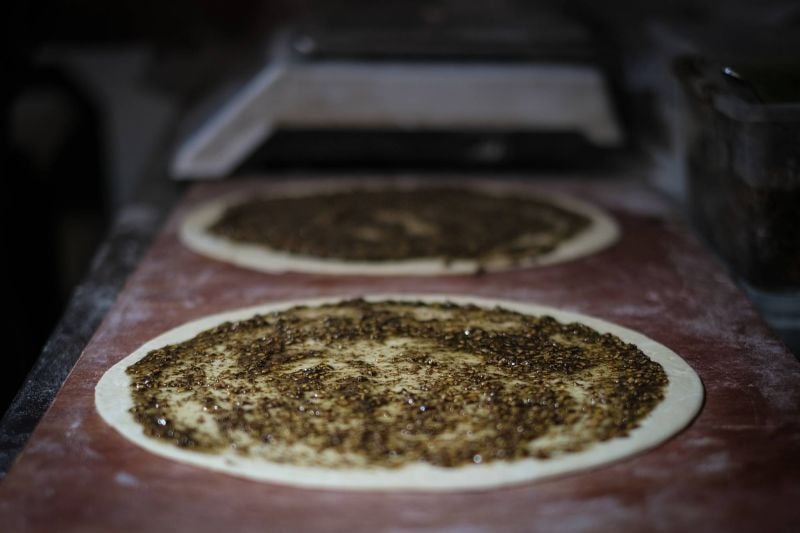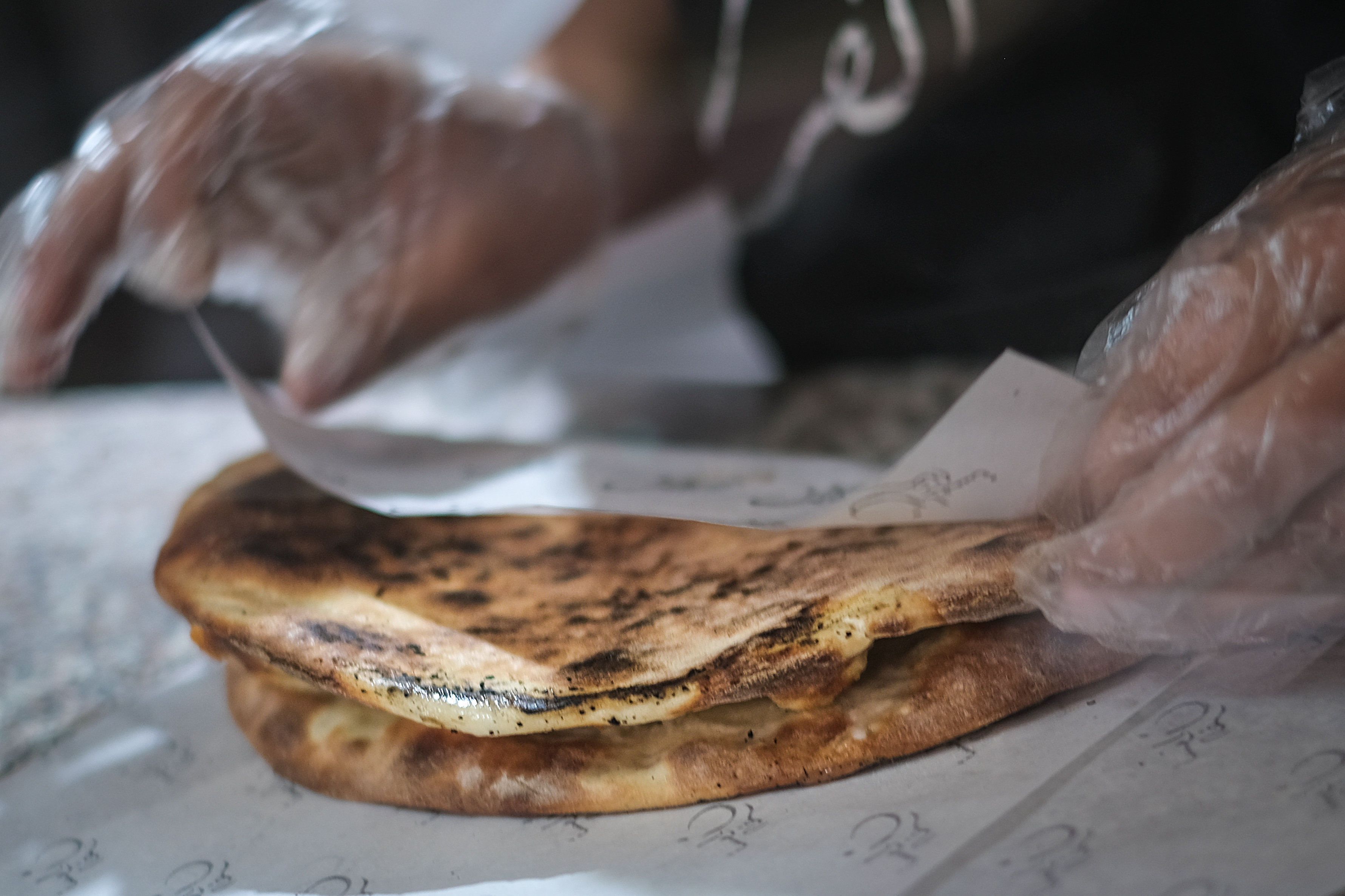
A pair of zaatar manoushe sit in a Lebanese bakery. (Credit: Joao Sousa/ L'Orient Today)
The simple zaatar manoushe, whose price today ranges from roughly LL30,000 to LL50,000 in Beirut, is priced in a manner comparable to imports. A key reason for this is that, contrary to what some believe, Lebanon imports the majority of the ingredients that go into making the staple of the local corner bakery.
Prior to the onset of the economic crisis, when the lira was pegged to the US dollar at LL1,500, Atef Sleiman, owner of Furn Rmeil in Beirut’s Rmeil neighborhood, sold zaatar manaeesh for LL750–1000 ($0.50–0.66).
At the current exchange rate that would come out to roughly LL30,000–LL40,000.
“We’re buying everything in dollars,” says Sleiman. “Whatever the exchange rate is, we’re paying the dollar equivalent in lira or paying it [directly] in dollars.”
The biggest expense for bakeries is fuel, according to George Hanna of Modi Bakery in Mar Mikhayel—either household gas or diesel.
Sleiman’s monthly diesel bill to operate his machinery and oven is $1,200–1,300 he says. Lebanon is subject to global fuel prices and Brent crude oil is 50 percent more expensive today on the global market than it was in early October 2019.
Sleiman most recently bought flour for $0.70 per kilogram. Hanna says a zaatar manouche requires about a third of a kilogram of flour, roughly LL14,000 worth of flour alone in a product that sells for LL30,000–50,000 and includes several other ingredients.
The flour is milled from imported wheat. Lebanon produces wheat but most of it is not of the type needed for manaeesh production. Lebanese farmers primarily grow hard durum wheat used for pasta, bulgur and freekeh, not soft wheat for bread. Their own inputs, like seeds and fertilizers, are also mostly imported.
Roughly 80 percent of the country’s cereal consumption comes from imported wheat. Wheat has seen a 54 percent price increase on global markets since Oct. 2019, partly attributed to the war in Ukraine’s disruption of a major wheat-producing region.
 A baker folds a manoushe, Lebanon's staple baked good. (Credit: Joao Sousa/ L'Orient Today)
A baker folds a manoushe, Lebanon's staple baked good. (Credit: Joao Sousa/ L'Orient Today)
Similarly, while Lebanon produces zaatar and olive oil, Hanna said he buys his from outside, local zaatar not having the right qualities for use in manaeesh.
Sleiman buys olive oil for $3.90 per liter. Everything down to the paper used to wrap the manaeesh and the nylon bags for takeaway customers is priced in dollars. Since those prices were paid, which was over a week ago, the lira has depreciated by a further LL12,000 per US dollar, and he expects his next restocking will be more expensive than his last was.
He says that he is unable to match prices to rapid inflation in the costs of supplies because his customers cannot afford it. As a result, he trails inflation.
“I’m selling, for example, zaatar manoushe for LL30,000 when the dollar was LL48,000. Now the dollar is LL51,000 and I’m still at LL30,000,” he said just a few days ago, before the lira dropped a further LL9,0000 per US dollar. “I’m not increasing the price directly in line with the dollar value, I’m lagging a few weeks behind inflation until people will accept a price increase.”
With Lebanese bakers at the mercy of global US dollar prices, the lira cost of manaeesh seems likely to continue following the movement of the exchange rate and inflation, becoming ever more unaffordable for the majority of residents, who earn in rapidly depreciating lira and whose salaries adjust to inflation very belatedly, if ever.
Shehadeh al-Masry, leader of a bakery workers’ union, noted that unlike staple Arabic bread, there are no government price controls on other bakery products. Arabic bread is also insulated from the full force of inflation in the form of import subsidies for wheat used to bake bread. Wheat for all other bakery products is not subsidized.
The latest prices for bread purchased from bakeries, issued today by the Ministry of Economy and Trade, are LL14,000 for a 341 gram package, LL24,000 for an 838 gram package, and LL29,000 for a 1.052 kg package. It is the second price increase in two days. For the large bundle, it is a 23 percent price increase compared to last week.
Manaesh baker Sleiman will continue to price based on what his customers can afford while still hopefully covering his costs. As for profit? Forget about it. “However much you sell it for, that’s how much it cost you.”